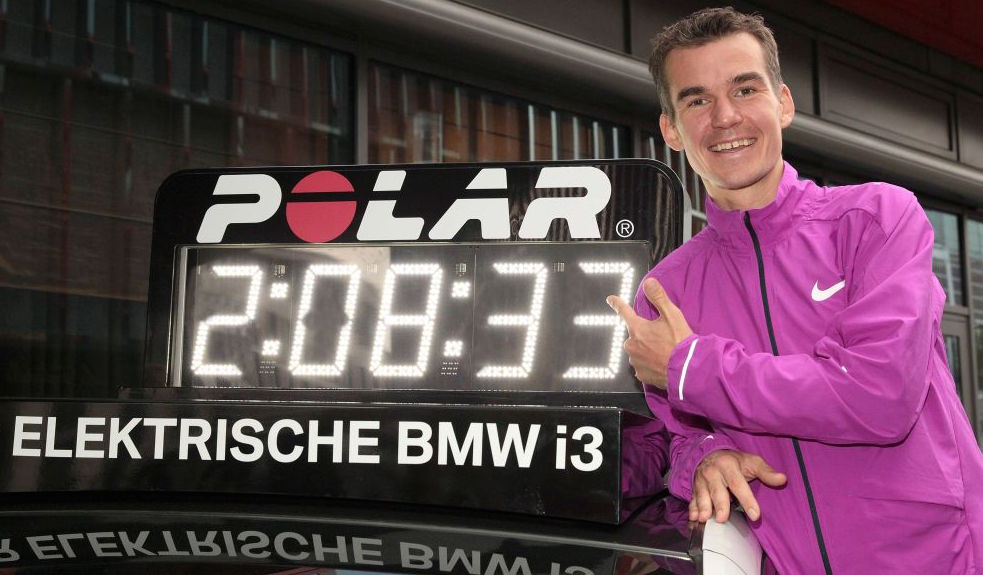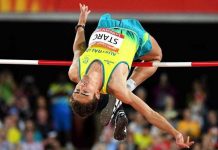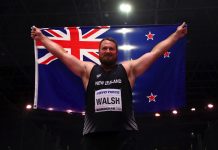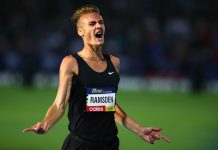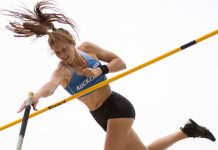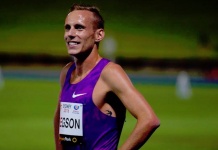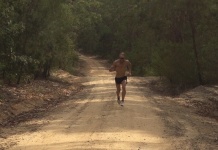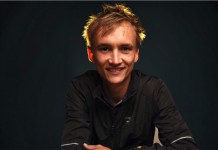Renowned Coach Renato Canova says new German marathon Record Holder Arne Gabius has the mind to excel in the next two Championship years
By Andy Edwards
Renato Canova knows a thing or two about preparing athletes for the big time in the marathon – and big time in more than one sense, not only fast performances but also the pinnacle of championship excellence. The Italian had therefore double reason to reflect with pleasure upon the success of Arne Gabius in Sunday’s Frankfurt Marathon. Gabius had run 2:08:33 to break the German record which had stood for 27 years, having been a regular recipient of Canova’s wisdom since the former’s thoughts had turned to the marathon and then his impressive debut in 2:09:32 in Frankfurt last year. What Canova witnessed in this year’s race was an athlete capable of making an impact on the Olympic and World Championship marathons.
Looking every inch the eminence grise behind dark glasses and leaning nonchalantly against a table in the crowded lobby of the race hotel, Renato Canova explained the path of discussion between adviser and athlete in the last ten days or so before Frankfurt: “We had two possibilities for the race, either for Arne to have personal pacemakers and go through halfway no faster than 64 minutes and then try to run under 2:08 or, and this is what we chose, for him to run in the lead group which was going through halfway in 63:30 or 20. We did this because Arne is not so young, he is 34, and, with a view towards the Olympic and the World Championship marathons over the next two years, he would have the chance of developing a better understanding of what happens up front in a race.”
The new German record holder’s time puts him 12th in this year’s list of leading performances worldwide if you take into account that only three runners per nation are able to compete in the Olympics. But when you consider championship prospects, other factors take on far greater significance than the plethora of fast times we have come to expect from the talented runners of East Africa in the big city marathons. Arne Gabius is as much aware of this as Renato Canova: “I’ll have a chance of being up there in the Olympics. There can be surprises in the marathon, anything is possible. It’s very rare [in championship marathons] for the first half to be run under 65. The American Meb Keflizighi won tactical races in Boston and New York and won an Olympic silver medal in 2004. It shows surprises can happen and those kind of stories motivate me.”
Gabius still had energy enough several hours after his record to visualise the ultimate scenario: “If I have a really good day in Rio, I might finish inside the top 10 and that would be fantastic. My experience of track races could help me because of the tactical aspect of championship races and that a lot of super fast marathon runners never run races without pacemakers.”
Renato Canova agrees that Gabius has gained crucial insight from the way he ran here in Frankfurt in his second marathon, ie, being in a large leading group for much of the race rather than being down the field with his personal pacemaker: “It was 100% more important that he did this and learned from it rather running faster but in a competition which was not a race. I can believe he will improve still further in the marathon and achieve a high placing in the Olympics but probably his best chance will be at the World Championships in 2017. All the top Africans want to run the Olympics but that’s not always the case with the World Championships.”
While believing that it will be important that Arne Gabius continues to include fast track sessions in his marathon preparation, pointing to the German’s retention of track speed with a 13:27 for 5,000m indoors this year, Canova explained his nuanced approach to the marathon: “I believe you can reduce the volume of running progressively for each marathon because the body has profited from what you have done before. It’s different with the Africans, they take long breaks after a marathon and many times they lose what they have. This is not a problem with Arne, he will be “tranquil” for fifteen days or so and then be back in training.”
“Tranquil” might not be the description Arne and Anne might choose as they prepare their wedding and honeymoon, both to take place in the USA shortly. Let the marathon sage Renato Canova have the last word on Arne Gabius’s potential for championship success in the marathon: “By 2017 he should have run five or six marathons and will have a better understanding of tactics. He has the brain, the mind to manage the competition which is completely different to one with a rabbit or pacemaker.” For all the fascination of fast times and world record attempts, how refreshing to contemplate tactical demands as the ultimate test in the marathon.


